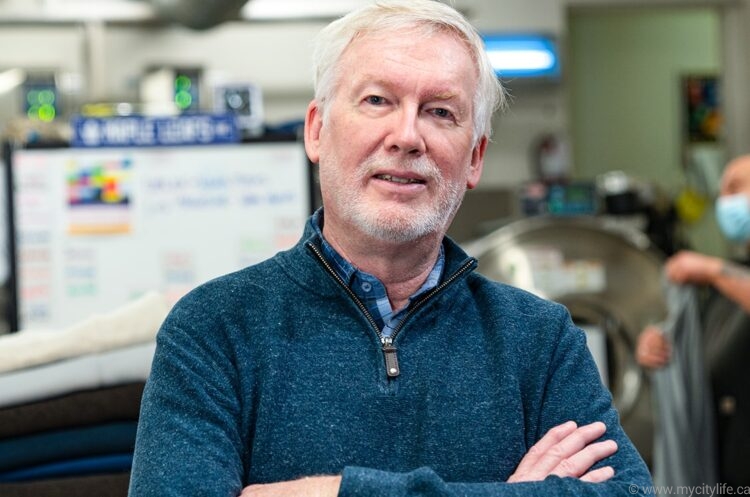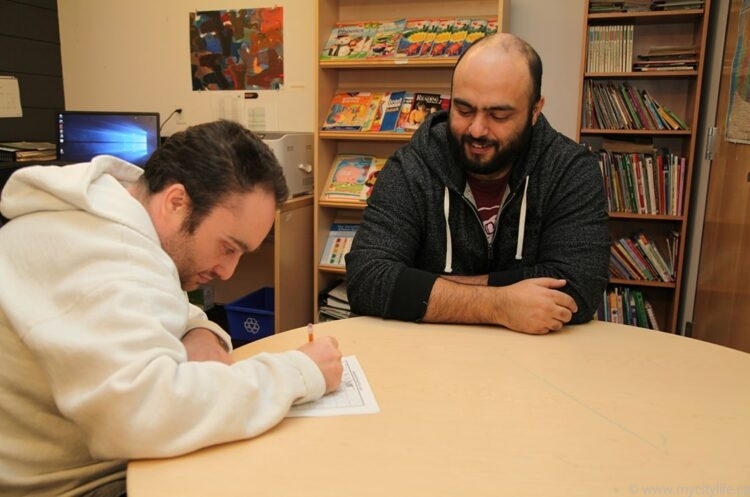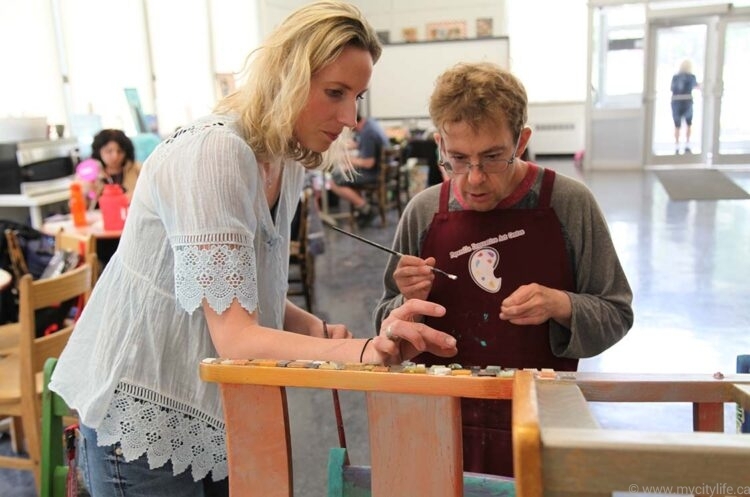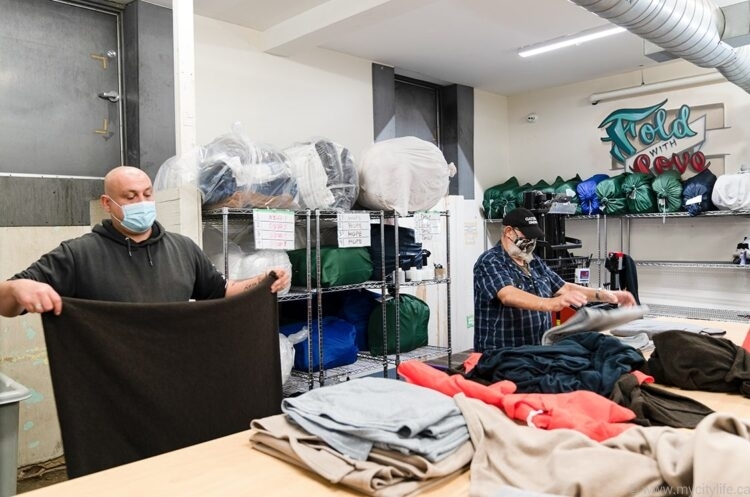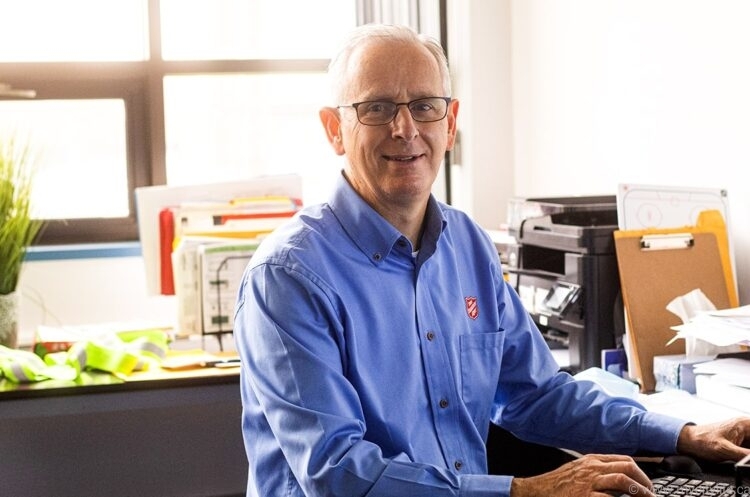The Salvation Army: A Place For Everyone
Widely known for its presence during the holiday season, The Salvation Army isn’t just Christmas kettles or food banks. The support around the holiday season is just a small part when it comes to serving the community.
Chestnuts roasting over an open fire. Cookies, carrots and milk. Gifts under a Christmas tree — these hallmarks of Christmas bring joy and warmth to many. But, for some, the less fortunate among us, the holidays can be a challenging time, and there is one organization that is synonymous with holiday charity: The Salvation Army.
But, while the little boy in front of the grocery store during the holiday season is in the forefront, what is less widely known is The Salvation Army’s year-round commitment to serving the underserved.
Through a wide range of programs, services and ministries, ranging from Gateway Linens & Disposal Services to Emergency Disaster Services, we take a look at the honorary work within The Salvation Army.
Stewart King, manager, Gateway Linens & Disposal Services
Q: Can you tell me about your ministry and why it’s an important part of The Salvation Army?
A: The Salvation Army is intentional about modelling the life of Jesus, who walked alongside those in need — people in crisis, or vulnerable, or who may be seen as “outcasts” in society because of their circumstances. Gateway Linens “walks alongside” by providing an important service — as an industrial laundry operation — to those who are residing in emergency homeless shelters and respites. Something as simple as having clean laundry can bring a measure of comfort and dignity. At the same time, Gateway Linens serves as an employment-retraining program for those who are at risk of homelessness and facing significant barriers in their lives, such as addictions. There are two words within The Salvation Army’s Mission Statement that are my favourites, and I hope these words are reflective of Gateway Linens: “transforming influence.” That is what we try to be.
Q: What makes you the most proud about the work that you do?
A: To hear individuals express gratitude for the opportunity to be a part of something important and to witness people moving on from Gateway Linens to meaningful long-term employment, or to upgrade their education, or sometimes to reconnect with family and friends from whom they had been estranged. These are all positive things that make me excited to get up and go to work every day.
William Osei, specialist, Pathway of Hope
Q: Can you tell me about your ministry and why it’s an important part of The Salvation Army?
A: More than a program, The Pathway of Hope is a framework for service delivery. It brings all The Salvation Army’s resources to the table, while working closely with clients who are living in poverty or experiencing instability in their lives, with a desire to change their life trajectory. The Pathway of Hope uses a case-management approach and a strength-based perspective to facilitate the working relationship with the Pathway of Hope participant and case worker.
This model is important to The Salvation Army because we are moving from a transactional service to a transformational and relational service delivery. The Pathway of Hope allows us to tactically solve root-cause barriers that our participants face and holistically address the whole person.
Q: Why is hope such an important aspect of The Salvation Army and life, generally?
A: Hope is a critical element of the therapeutic, helping relationship. The Salvation Army has learned that increasing hope is an essential component for achieving and maintaining increased social functioning or change. It motivates people to seek help. Hope is also a resource needed to persevere no matter the condition and to strive for a better future.
Deanna Finch-Smith, executive director, Lawson Ministries Hamilton
Q: Can you tell me about your ministry and why it’s an important part of The Salvation Army?
A: I have worked for The Salvation Army for 31 years in social services, mainly in Developmental Services. Seeing individuals learn new skills to improve their life and become part of their own community is so rewarding. Clients might learn to cook their own meal, ride the city bus, finish their schooling, attend a local college, write a resumé or obtain their first paid employment position. The Developmental Services work we do every day is such a big part of the mission and vision of The Salvation Army, and it is the support we provide every minute of every day we are at work.
Q: What makes you proud about the work that you do?
A: I don’t see what I do every day as a job, but more of an opportunity to learn from others, meet amazing people and see the successes I get to see every day, which may be as simple as learning to pull up a zipper, or sharing tears as someone graduates.
John Halbert, executive director, Ontario Distribution Centre
Q: How important is the role that community food banks play in society?
A: Food security is having reliable access to a sufficient quantity of affordable, nutritious food. Without it, there is a foundational piece of life missing, like shelter, clothing or love. Community food banks attempt to help address this need by providing food support to the vulnerable in their communities, which enables their clients to get on with their lives without having to be worried about where the next meal is coming from. Every problem in life is magnified by hunger, and community food banks do a fantastic job in helping address this one key area of food security, so that our clients can place their focus on other issues they are facing.
Q: How many people does the distribution centre serve?
A: About 320,000 people a year across Ontario receive assistance from our Community and Family Services Ministry Units alone. This does not include our shelter work or other social programs.
Art Matthews, executive director, Broadview Village
Q: Can you tell me about your ministry and why it’s an important part of The Salvation Army?
A: Within The Salvation Army, it’s all about helping those with the greatest need — regardless of who they are. As a Ministry Unit that supports people with developmental disabilities, mental health issues, addictions issues and combinations thereof, our work is an ideal reflection of the core philosophy of the army and its mandate to serve. Some of the individuals we support were unable to receive support through any other venues because their needs exceeded the capacity of most other agencies. I would suggest that our work is a true reflection of the philosophy of The Salvation Army founder, William Booth.
Q: What makes you proud to be a part of the team at The Salvation Army?
A: We support everyone — regardless of race, cultural background, creed, faith, sexual or gender orientation — starting where they are at and then journey with them as their life changes and they develop.
Glenn van Gulik, divisional secretary for public relations, Emergency Disaster Services (EDS)
Q: Can you tell me about your ministry and why it’s an important part of The Salvation Army?
A: The Salvation Army’s Emergency Disaster Services program is critical to providing holistic support to those affected by emergencies and disasters. This includes supporting individuals and families with their practical needs in an emergency, including food, clothing and medications, as well as their emotional and spiritual needs through a listening ear, counselling and other supports. This is important to The Salvation Army because this lives out our mission very clearly and effectively, often at a time when individuals are in desperate need of support.
Q: If you could ask for one thing to enhance the work that you do, what would that be?
A: To be present in the community, our dedicated volunteers are critical in delivering these emergency services. We are always looking for passionate people who are motivated by love and care to serve their neighbours in times of crisis. With more people engaged and involved in delivering emergency and disaster services, The Salvation Army would be able to respond even more effectively and be better positioned to provide immediate and long-term supports in communities throughout the province.











































































